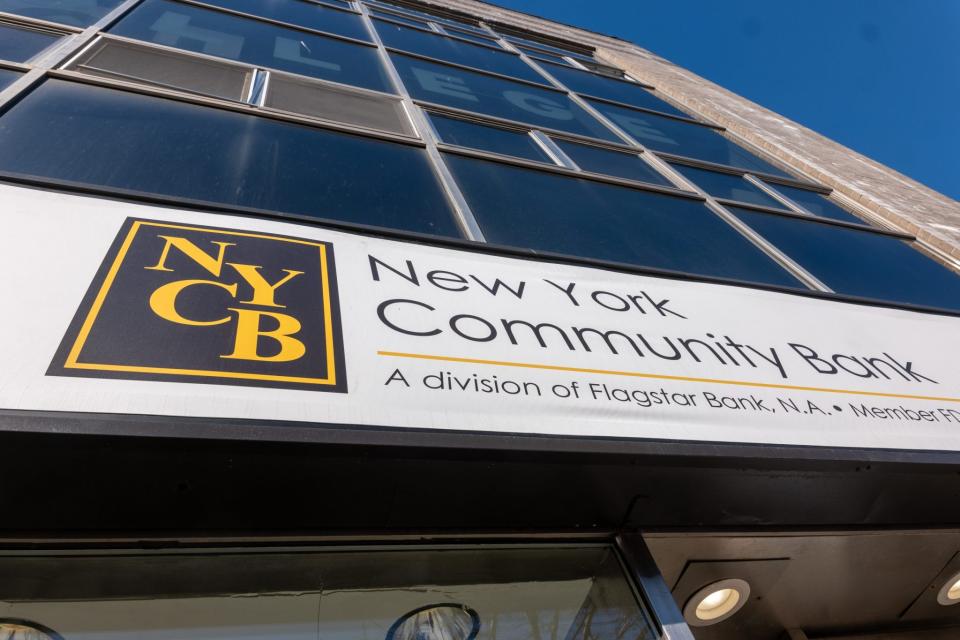While the languishing commercial real estate market may be ‘manageable,’ a top analyst reminds us ‘we’re not out of the woods yet’

Good morning. The spotlight has returned to regional banks amid the struggling commercial real estate market.
“It feels like a problem we’ll be working on for years,” Federal Reserve Chair Jerome Powell said in a recent 60 Minutes interview. He said that “it’s a sizable problem." However, from looking at the larger banks' balance sheets, it appears to be "a manageable problem," Powell said. He doesn't see much risk for a repeat of the 2008 banking crisis, but some smaller and regional banks that have concentrated exposures in commercial real estate are challenged, he said.
Meanwhile, Treasury Secretary Janet Yellen told lawmakers on Feb. 7 that she’s “concerned” about the combination of high interest rates and vacancy rates plaging the commercial real estate market, Fortune reported. Yellen also said she believes the situation is manageable “although there may be some institutions that are quite stressed by this problem.”
Considering last year’s infamous bank run on Silicon Valley Bank, its subsequent collapse, and that of Signature Bank and First Republic Bank, on Jan. 31 New York Community Bancorp rattled Wall Street when it reported earnings. The bank slashed its dividend by 71%, to 5 cents a share, and reported a Q4 loss of 36 cents a share. NYCB set aside a $552 million provision for credit losses and a $185 million net charge-off connected to New York City office and multifamily properties.
NYCB has since sought to reassure investors by appointing Alessandro DiNello, the former CEO of Flagstar Bancorp, as its executive chairman. DiNello said on a call Feb. 7 the bank will consider selling loans in its commercial real estate portfolio or allow them to run off the balance sheet naturally, Reuters reported. The bank has liquidity of $37.3 billion, exceeding its total uninsured deposits that, excluding collateralized and internal deposits, stood at $22.9 billion, Fortune reported. NYCB has a total deposits of approximately $83 billion.
David Chiaverini, a managing director at Wedbush Securities, detailed some concern in a note to investors on Feb. 2 regarding banks' Q4 earnings results. "Names we feel incrementally worse about post-earnings include NYCB, COLB [Columbia Banking System, Inc.], and VLY [Valley National Bancorp],” he wrote.
Is NYCB a reasonable reflection of peers at this point? “We’re not out of the woods yet regarding commercial real estate losses," Chiaverini told me. But he also echoed Powell and Yellen in saying the issue remains “manageable for most banks” because maturities are “spread out over multiple years, which provides time for banks to set aside appropriate reserves.”
In the wake of last year's regional bank collapses, CFOs began facing some difficult questions from stakeholders and boards—even if their firms weren't directly impacted—as risk management kicked into a higher gear.
Although banks are “well capitalized and our base case is that we won’t see additional bank failures,” Chiaverini explained, “CFOs should be prudent in managing their uninsured deposit levels appropriately and should have multiple bank relationships to spread risk.”
Sheryl Estrada
sheryl.estrada@fortune.com
Upcoming event: Fortune’s CFO Collaborative is an invitation-only group of CFOs from leading companies that meets virtually and in person for deep-dive discussions on what’s top of mind.
Next month, our topic will be “Determining the value proposition for GenAI.” In this intimate dinner discussion, scheduled for Feb. 28 in Houston and hosted in partnership with Workday and Deloitte, we’ll explore how companies can best capitalize on the AI Revolution and the operational and organizational changes required for businesses to incorporate GenAI. Join me and Fortune senior editor-at-large Geoff Colvin for a discussion with Niccolo de Masi, chairman of The Futurum Group, a global technology advisory, and leading CFOs from Houston and beyond.
It’s an invite-only event, but CFOs can apply to attend here. If you’d like more information, please send an email to: CFOCollaborative@Fortune.com
This story was originally featured on Fortune.com